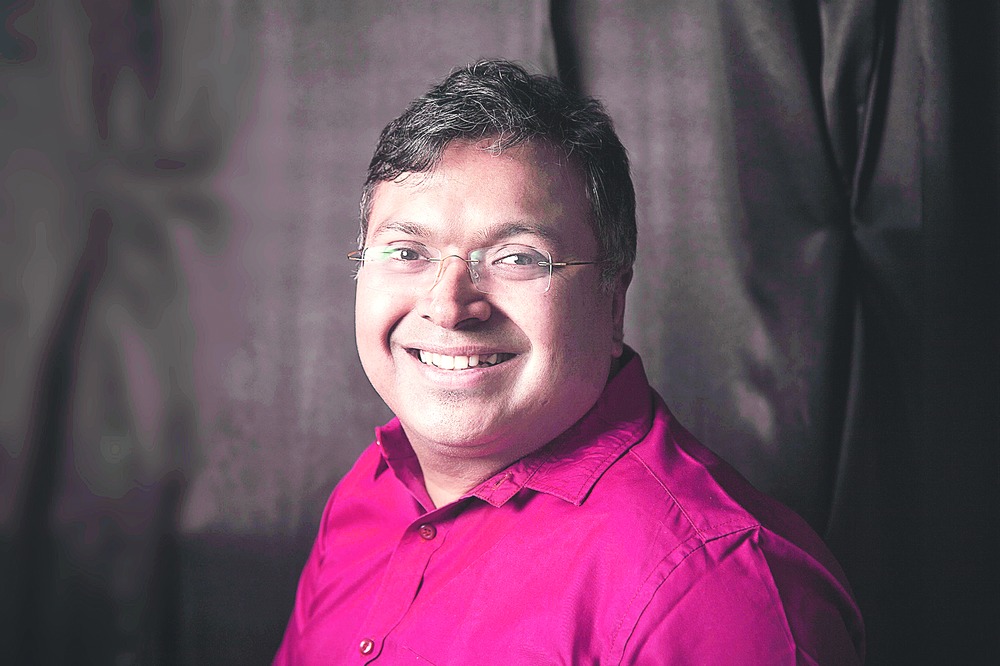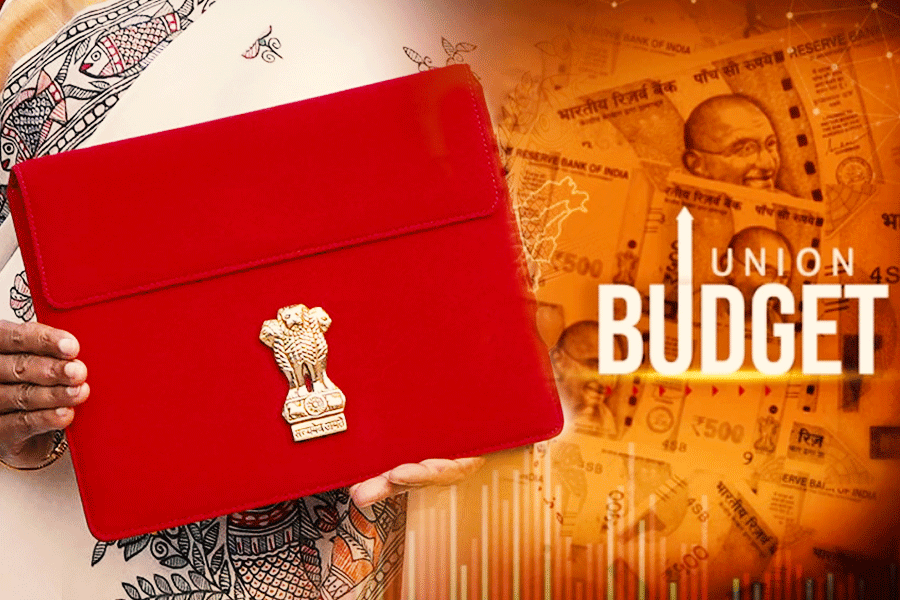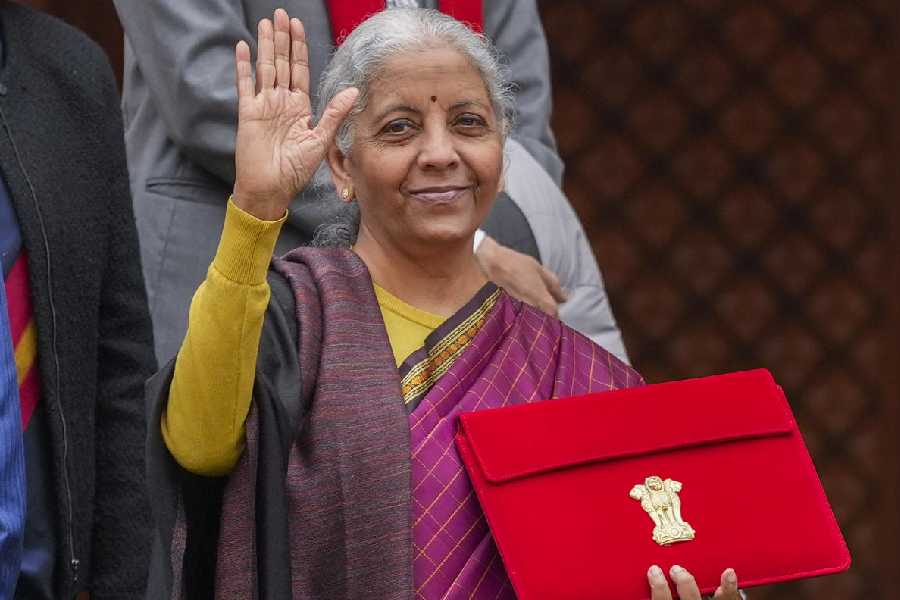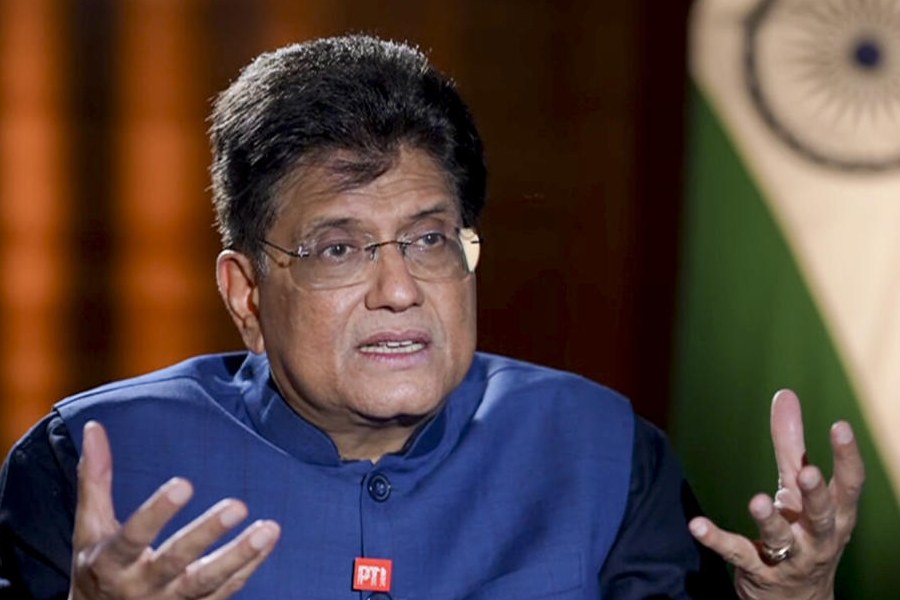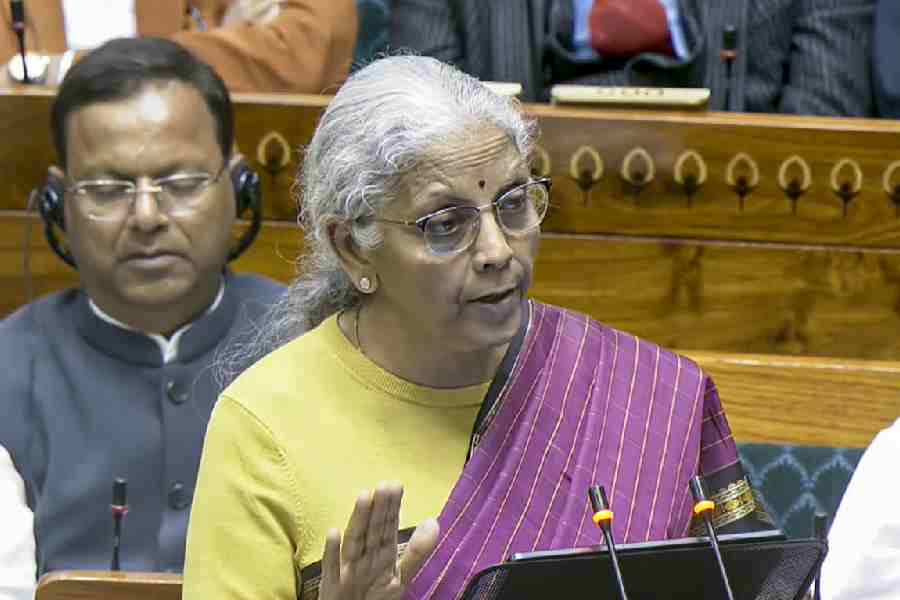
Devdutt Pattanaik describes himself as a pattern thinker. "My mind sees patterns," he says. So when he pores over mythology - his forte - it's a set of patterns that he looks out for.
Just what kind of patterns, I ask a bit tentatively, for his thoughts are not always easy to grasp.
For instance, he explains patiently, relationships in Indian mythology. "Western mythology is goal oriented, Chinese mythology, order oriented, and Indian mythology relationship oriented. Western mythology seeks a fixed ending while Indian mythology celebrates fluidity and uncertainty. All our scriptures have this pattern of uncertainty," he says.
Pattanaik has written over 30 books, many of them bestsellers such as Myth = Mithya and Jaya: An Illustrated Retelling of the Mahabharata. Except for Pregnant King, which is now a part of gender studies at several universities, all his books are non-fiction narrative accounts of the lives of mythological characters.
"Fiction is nobody's truth, mythology is somebody's truth and fact is everybody's truth. And there is always a battle among these three," he says when I ask him if he himself believes in mythology.
We are chatting in the coffee shop of Waterfront Club, an exclusive for-members-only club in Mumbai, and he is talking about his new book My Gita, an interpretation of the scriptures. Myths, not surprisingly, are the leitmotif of the conversation, as Kenny G's saxophone plays in the background.
How does he explain the great interest in mythology among Indian readers? The Harry Potter books, he believes, have made fantasy acceptable.
But his interest in myths took root long before that. "From a young age I was drawn into reading philosophy," he says, adding that when he was 15, he discovered the works of American mythologist Joseph Campbell.
He started writing about mythology because he thought there were just not enough books on the subject for a larger audience. "I realised that people look at the Ramayana and the Mahabharata in isolation and do not realise that they are part of a larger narrative of the Vishnu Purana which is again part of a larger 'puranic worldview'. In my books I try to explain that all our texts are inter-related."
Pattanaik, however, is a physician by training - he studied medicine in Mumbai, where he grew up and is based. He is also a much in demand corporate trainer and public speaker. His bestseller Business Sutra connects Hindu ethos to management principles.

He started his career as a researcher in a pharmaceutical firm. After 14 years in the industry, he quit his job to focus on writing and corporate training. In 2008, he joined the Future Group as a "chief belief officer". His job, he says, was to "inculcate" ideas from the scriptures and develop the group's corporate ethics.
He stepped down some years ago, and is now a consultant for STAR TV on its mythological shows. Another television channel, Epic, recently started a programme called Devlok, where he talks about mythology and the modern world.
Just how do his three disparate interests merge?
"I may not be trained in writing but I enjoy the craft. My techniques of communication are language, diagrams, flow charts, tables and illustrations. All this comes from my training as a science student," Pattanaik, 45, says.
His interest in mythology prompted him to study comparative mythology, a course offered by the Sanskrit department of Mumbai University. He is perhaps the first writer to compile and comment on queer ideas in Hindu mythology.
Pattanaik is surprisingly candid in his views on subjects that most tend to be wary of. Take his position on the American Indologist,Wendy Doniger. He has often criticised her viewpoint, but he wrote passionately in her support when her book on Hinduism ran into trouble in India.
"Wendy's data are superb and research excellent but she has decided that Hindutva is mainstream Hinduism. Who told her that," he asks. "Try writing European history and see how Western scholars talk to you. You will be treated exactly the same way we treat Wendy," he argues. "We don't like our stories being told by outsiders. All history is ugly and we are too thin-skinned to handle it."
And all thinkers, he adds, have an element of bias in them.
"There is no such thing as absence of prejudice. Look at Amartya Sen's writings and his biases. It's Left leaning and it's his version of reality. My reality is real for me. Our problem is that we don't understand subjectivity at all. And there is a great need to apply subjectivity to cultures."
Speaking of subjectivity, what about the critical review of My Gita by economist Bibek Debroy? Debroy wrote that Pattanaik lacked the skill to interpret ancient texts.
"I am not surprised by it," he replies calmly. "He is an economist and a brilliant translator. He is trying to say that you have to know Sanskrit to read the Gita. I just wish he was less vicious," he adds.
But Debroy calls him a master storyteller, I point out. "Yes, he does. But he is also saying: Stay within your boundary. You are a great sweeper but don't try to write poetry. It's okay. He is a good friend. Maybe he genuinely thinks that way."
He has equal disdain for the Right and the Left, he says. "Our Right wing is overly sensitive. They [the Right and the Left] are the uncle and aunt with whom you can't have an honest talk because they are not at peace with themselves."
Pattanaik may be frank about academics, but is cagey about his own life. "I would keep my private life within me and not share it in public space. Am I not allowed to have that freedom? Most of the problems in our country stem from the fact that the private has become public," he says. "The State will decide who you should marry and what you should eat. Do you realise how creepy it is?"
He has finished his breakfast, and I am done with my green tea. Kenny G seems to have stopped for a breath, too. I make a move, convinced that I need to revisit my mythology.

